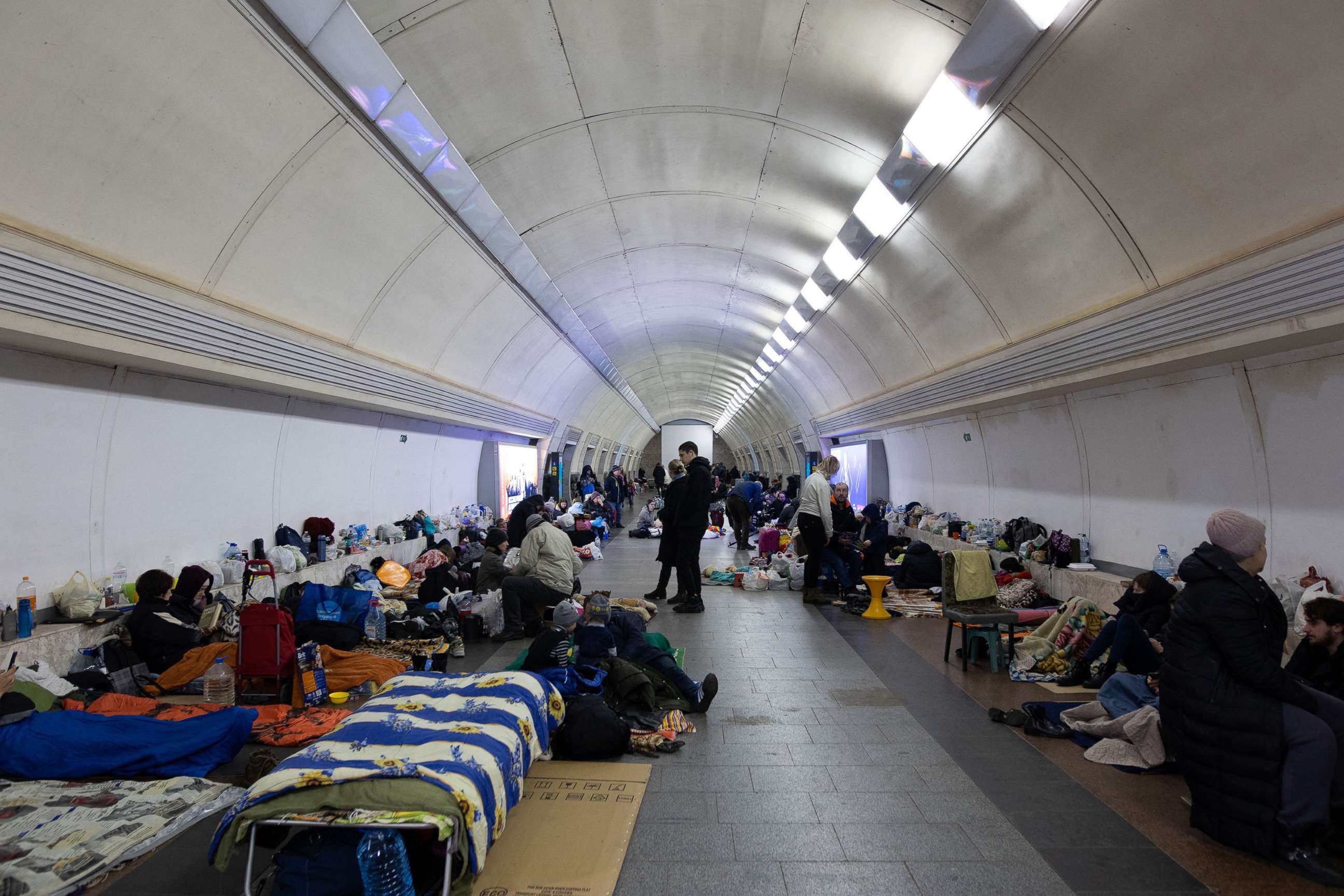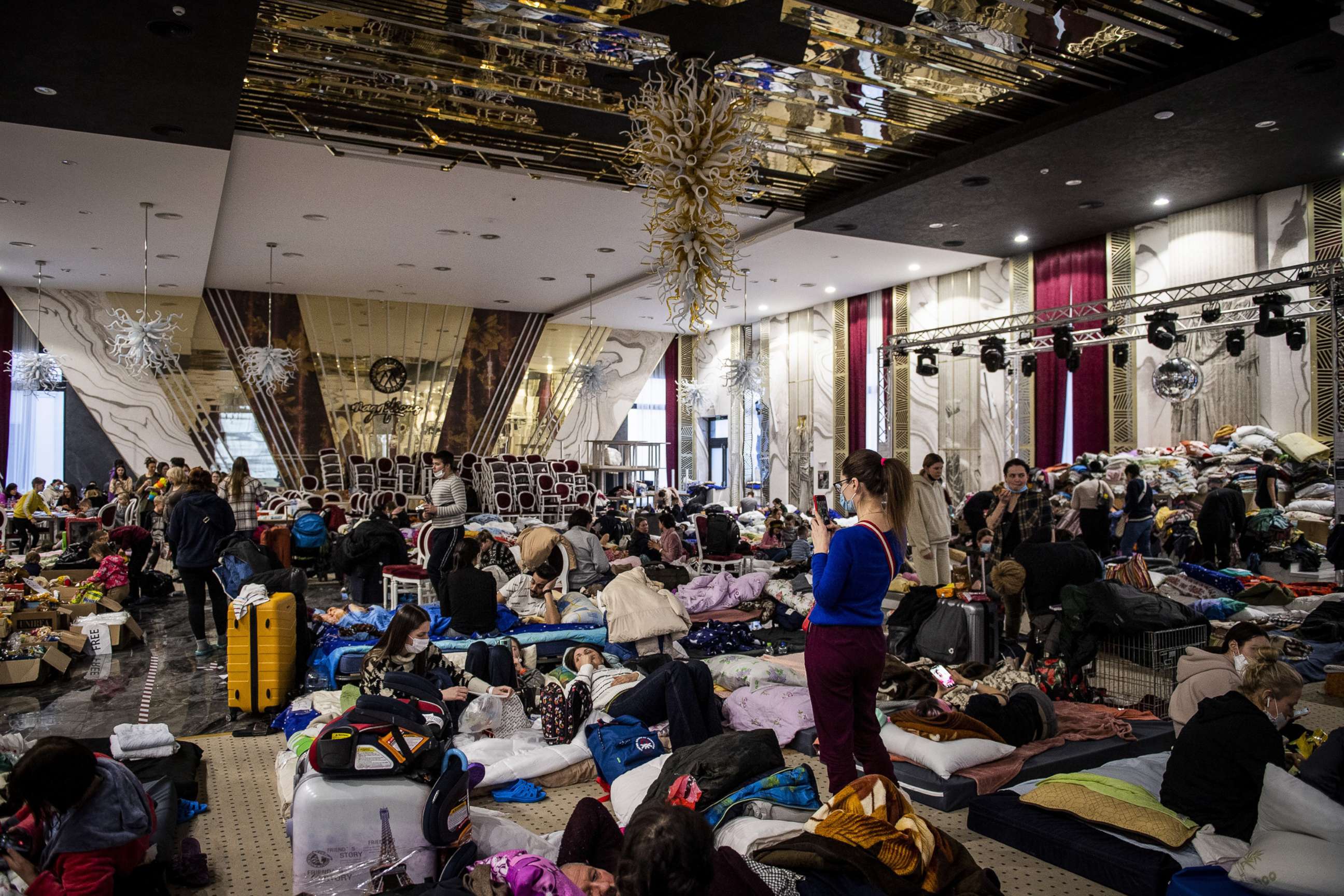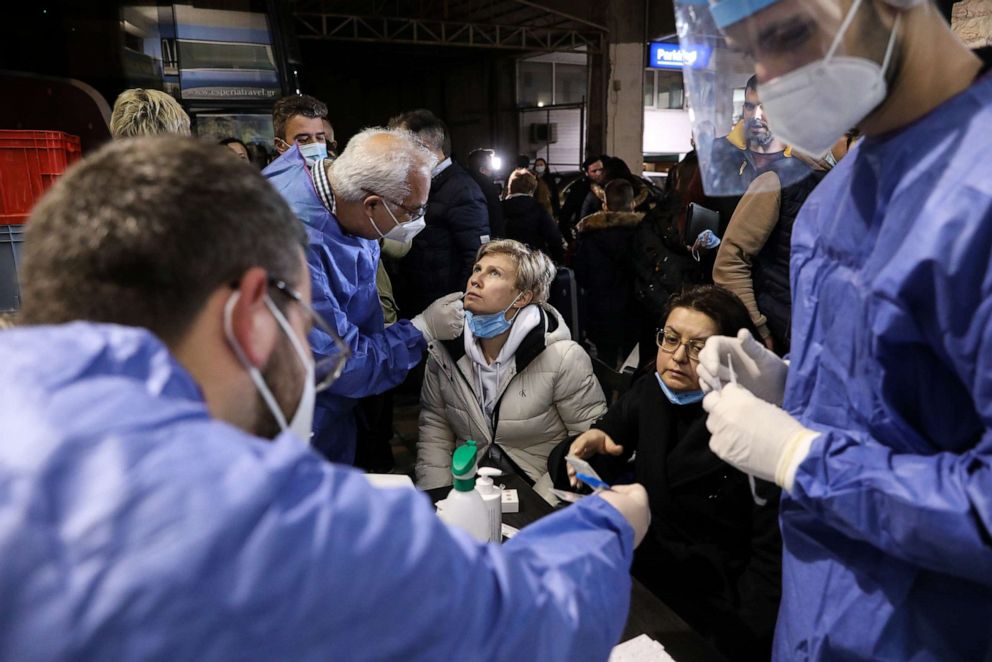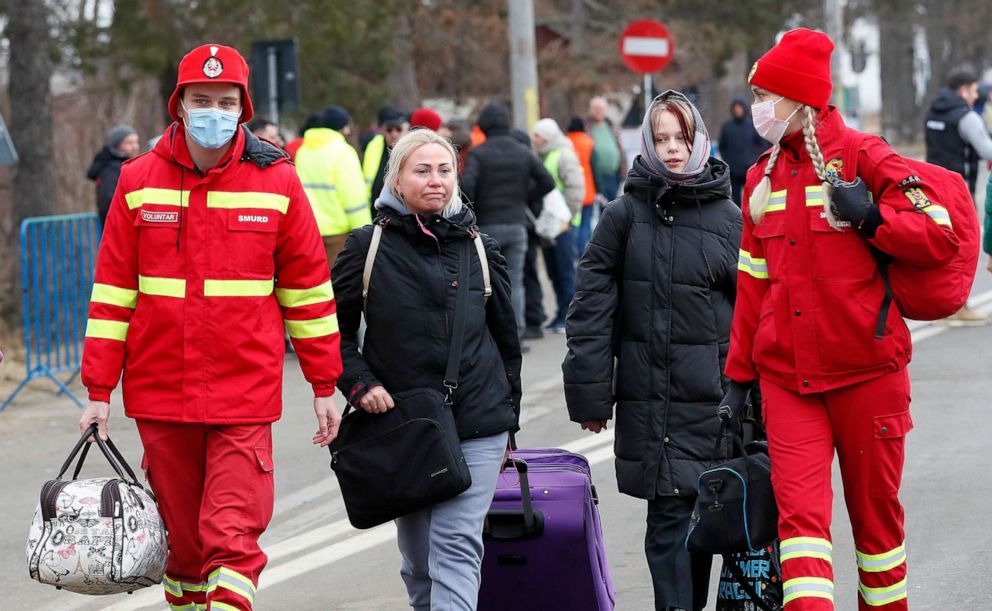A war during a pandemic: experts warn of a perfect storm
Only 35% of Ukrainians are fully vaccinated.
In the midst of an ongoing Russian invasion of Ukraine, public health experts are now warning that the COVID-19 pandemic could soon accelerate in the region.
While medical care for casualties of war is now the first priority, experts say the crisis could accelerate the spread of infectious disease, including COVID-19 -- especially as a growing number of Ukrainians are displaced and forced in cramped, fraught situations.
Ukraine was already struggling with the pandemic before the war started, with the highly transmissible omicron variant causing a surge in cases. In the past four weeks alone, Ukraine reported more than 900,000 COVID-19 cases, more than one-fifth of total cases from the entire pandemic. Only 35% of Ukrainians are fully vaccinated.


"Migration and congregation of populations is likely to significantly contribute to disease spread, especially given the current surge of the highly transmissible omicron variant," said John Brownstein, PhD, epidemiologist, chief innovation officer at Boston Children's Hospital and ABC News contributor.
WHO Director General Dr. Tedros Adhanom Ghebreyesus warned Wednesday there's likely to be significant undetected transmissions.
Tarik Jasarevic, WHO spokesperson, told ABC News Live, "We will probably see less of testing, less of sequencing, less of a heavily epidemiological picture of COVID-19."
Should the COVID-19 crisis escalate, experts also worry about the capacity to plan ahead and treat sick patients.
"Our ability to respond will be hampered by the lack of testing and surveillance, which means that we are likely to be flying blind as to the impact of the virus for weeks to come," Brownstein said.


The WHO has warned of a critical oxygen shortage, with three major oxygen plants in the country now closed.
"We have to really understand this population is already vulnerable," Jasarevic said, noting the health system has been overstretched through the pandemic.
The WHO has sent its first shipment of supplies to neighboring Poland, including 40 tons of supplies for trauma care and emergency surgery.
"It's really important that we do our best to support those heroic health workers who are risking their lives just by going to work and they are under immense personal pressure as well because they are also affected their families in conflict zones," Jasarevic said.
ABC News' Arielle Mitropoulos and Christine Theodorou contributed to this report.




